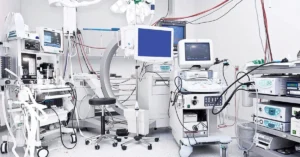Benefits of Regular Cardiological Examinations

Maintaining heart health is crucial for overall well-being. Cardiovascular diseases are among the leading causes of death worldwide, yet many of them are preventable or manageable through early detection and proper care. One of the most effective tools for identifying potential heart problems early is the cardiological examination. In this article, we will explore the major benefits of undergoing regular cardiological evaluations and why they should be an essential part of your healthcare routine.
Understanding Cardiological Examination
A cardiological examination refers to a set of diagnostic procedures performed to assess the condition and performance of the heart. These assessments may include physical exams, electrocardiograms (ECG), echocardiograms, stress tests, blood tests, and sometimes advanced imaging like CT scans or MRIs. The primary goal is to detect any abnormalities, assess risk factors, and guide appropriate interventions before more serious issues develop.
Early Detection of Heart Disease
One of the most significant benefits of regular cardiological examination is the early detection of cardiovascular diseases. Many heart conditions, such as coronary artery disease, heart failure, and arrhythmias, develop slowly over time. Often, they remain asymptomatic in the early stages. By the time symptoms such as chest pain or shortness of breath appear, the condition may have already advanced.
Routine cardiological check-ups can identify warning signs like high blood pressure, irregular heart rhythms, or plaque build-up in arteries, allowing for early treatment and potentially life-saving interventions.
Personalized Risk Assessment
Each individual has a unique risk profile when it comes to heart disease. Factors like age, gender, family history, lifestyle habits, and coexisting conditions (such as diabetes or obesity) all influence heart health. Regular cardiological examinations help to create a personalized risk assessment for each patient.
Doctors can use the findings from a cardiological examination to recommend specific lifestyle changes, medications, or further testing tailored to an individual’s needs. This targeted approach significantly improves the chances of preventing heart disease.
Monitoring Chronic Conditions
Many people live with chronic health conditions that increase their risk of developing heart problems. These include hypertension, diabetes, high cholesterol, and kidney disease. For such individuals, regular cardiological examinations are not just preventive but necessary for ongoing management.
A cardiological check-up ensures that these conditions are not causing silent damage to the heart. Adjustments to medication, diet, or activity levels can be made promptly based on the findings, helping to prevent complications like heart attacks or strokes.
Enhancing Lifestyle Modification Efforts
Lifestyle changes play a vital role in maintaining heart health. However, without a clear understanding of one’s current cardiovascular status, it can be challenging to know where to begin. Cardiological examinations provide a concrete picture of heart health, which serves as a strong motivator for patients to commit to healthier habits.
Whether it’s quitting smoking, exercising more, reducing salt intake, or managing stress, the data gathered during a cardiological examination can provide specific, actionable insights. This guidance empowers patients to make informed decisions about their health.
Reducing Emergency Health Events
Heart attacks, strokes, and sudden cardiac arrest often strike without warning. Regular cardiological examinations can reduce the likelihood of such emergencies by identifying and addressing underlying risks before they reach a critical point.
For instance, an ECG might detect irregular heart rhythms that could lead to stroke, or an echocardiogram might reveal valve problems that need monitoring. By catching these issues early, doctors can recommend timely treatments, potentially avoiding a life-threatening event.
Saving on Long-Term Healthcare Costs
Preventive healthcare is not only beneficial to physical well-being but also to financial health. Treating advanced heart disease often involves expensive hospital stays, surgeries, medications, and rehabilitation. Regular cardiological examinations, though an upfront investment, can help avoid these high costs in the long run.
By identifying and managing heart-related issues early, patients can often avoid costly treatments and maintain a higher quality of life without prolonged medical intervention.
Supporting Mental and Emotional Health
Heart disease doesn’t only affect the body; it has a profound impact on mental and emotional well-being. Knowing you are at risk or recovering from a heart event can lead to anxiety, depression, and stress. Regular cardiological examinations offer peace of mind. When results come back normal, it can reduce unnecessary worry. If a problem is found, having a structured plan to manage it can make patients feel more in control of their health.
This sense of security and proactive management significantly contributes to emotional resilience, especially in those with a family history of heart disease.
Critical for Aging Populations
As people age, their risk of developing cardiovascular issues increases. For the elderly, regular cardiological examinations are essential in managing the natural wear and tear of the cardiovascular system. Aging often brings changes like stiffened arteries and weakened heart muscles, which can lead to heart failure or other complications if not monitored.
Routine cardiological assessments ensure that age-related changes are carefully observed and managed, allowing seniors to maintain independence and a high quality of life for longer.
Valuable for Athletes and Physically Active Individuals
High-performance athletes or even regular gym-goers can benefit from routine cardiological examinations. Intense physical activity places stress on the heart, and while exercise is generally beneficial, in some cases, it can exacerbate undiagnosed conditions. Young athletes have occasionally been known to suffer from undetected congenital heart abnormalities, which can lead to tragic outcomes during exertion.
A cardiological examination helps ensure that a person’s heart is functioning safely under stress, making it an important tool for anyone who is regularly engaged in high levels of physical activity.
Building a Long-Term Relationship with a Cardiologist
Seeing a cardiologist regularly fosters a long-term relationship that is beneficial in many ways. Over time, the doctor gains an in-depth understanding of a patient’s health history, making it easier to detect subtle changes that might indicate a problem. It also ensures continuity of care and a proactive approach to maintaining heart health, rather than reacting only when symptoms appear.
A cardiologist can track your progress over years, compare past and present test results, and provide continuity that improves diagnosis and treatment quality.
Conclusion
A regular cardiological examination is a powerful tool in maintaining heart health and overall well-being. It provides early detection of disease, personalized risk assessments, chronic condition monitoring, and helps guide essential lifestyle changes. By identifying problems before they become serious, it can prevent emergencies, reduce long-term healthcare costs, and improve quality of life—physically, emotionally, and financially.
Whether you’re managing a known condition, have a family history of heart disease, or simply want to take control of your health, making cardiological exams a routine part of your healthcare strategy is one of the smartest decisions you can make. Let your heart be seen before it sends a warning sign.






